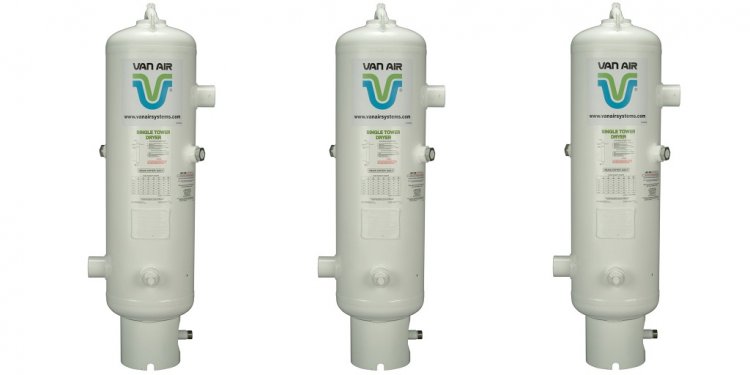What Role Do Air Compressor Desiccant Dryers Play in the Food and Beverage Sector?
Air Compressor Desiccant Dryers
Share this Post to earn Money ( Upto ₹100 per 1000 Views )

It's no secret that the food packaging and processing industries rely heavily on compressed air. It is utilized in the filling of baked goods, pastries, and liquids, as well as in the packing and delivery of snacks, vegetables, alcoholic beverages, and other consumables. To guarantee the safety of the food products being processed, compressed air must be completely dry and devoid of any contaminants.
An air compressor desiccant dryer, as opposed to a refrigerated system, is the more common and practical choice in the food processing industry. Given the importance of avoiding any contact with moisture during the creation of edible goods, this is understandable.
Water vapor is chilled to its dewpoint in a refrigerated dryer, making it easy to drain out of the system. However, this type of dryer is not ideal for tasks that require extremely dry air. As a result, it is not the best choice for circuits that operate in below-freezing conditions.
What Exactly is an Air Compressor Desiccant Dryer?
Desiccant air dryers for air compressors use beads made of drying agents like silica gel and activated alumina to remove moisture from compressed air. To continually deliver compressed air free of vapor, these air dryer devices are frequently regenerative, which eliminates the need to replace the drying chemical.
Since air compressor desiccant dryers absorb moisture, they are superior at removing humidity from the air in food processing systems and in freezing temperatures. The only potential drawbacks of these systems are their higher initial cost, their potential energy use, and the periodic replacement of the desiccant.
What Roles Do Desiccant Dryers Play in the Food and Beverage Sector?
When air compressors are utilized for bottling, packaging, production, cleaning kegs, etc., the compressed ambient air draws in all the moisture and debris floating in the atmosphere. Any manufacturer, no matter how big or small, would face serious problems if liquid and contaminants were concentrated downstream of the compressor.
Manufacturers of food and drink place a premium on cleanliness, therefore limiting the introduction of any foreign substances by means such as contaminates and humidity is a top priority. Compressed air dryers and filters are utilized for this purpose.
Using dryers in an industrial setting also prevents the clogging and rusting that can occur when moisture accumulates in the machinery used in an assembly or production line. In doing so, we avoid slowing down the packaging line and maximize efficiency.
Although refrigerated dryers have their place in non-contact settings, they are never a substitute for desiccant dryers. When making food or drinks, any time the compressed air comes into contact with the product, whether it be during processing, packaging, or shipping, is considered a contact application.
An air compressor desiccant dryer removes the moisture from the compressed air, lowering the dew point and preventing it from spoiling food, damaging packaging, or spreading contaminants. This guarantees that it's completely dry before it touches the end result.
Although many companies may not give much thought to air treatment until it is too late, employing an appropriate air dryer during condensate management is crucial for ensuring a high-quality end product free of contaminants. Regardless of the type of food and beverage business, Air & Vacuum Process Inc. has the products you need to run your operation smoothly.
For more information about Silent Air Compressors and Lithium Chloride Desiccant Please visit: Air & Vacuum Process Inc.

 airvacuumprocess
airvacuumprocess 












